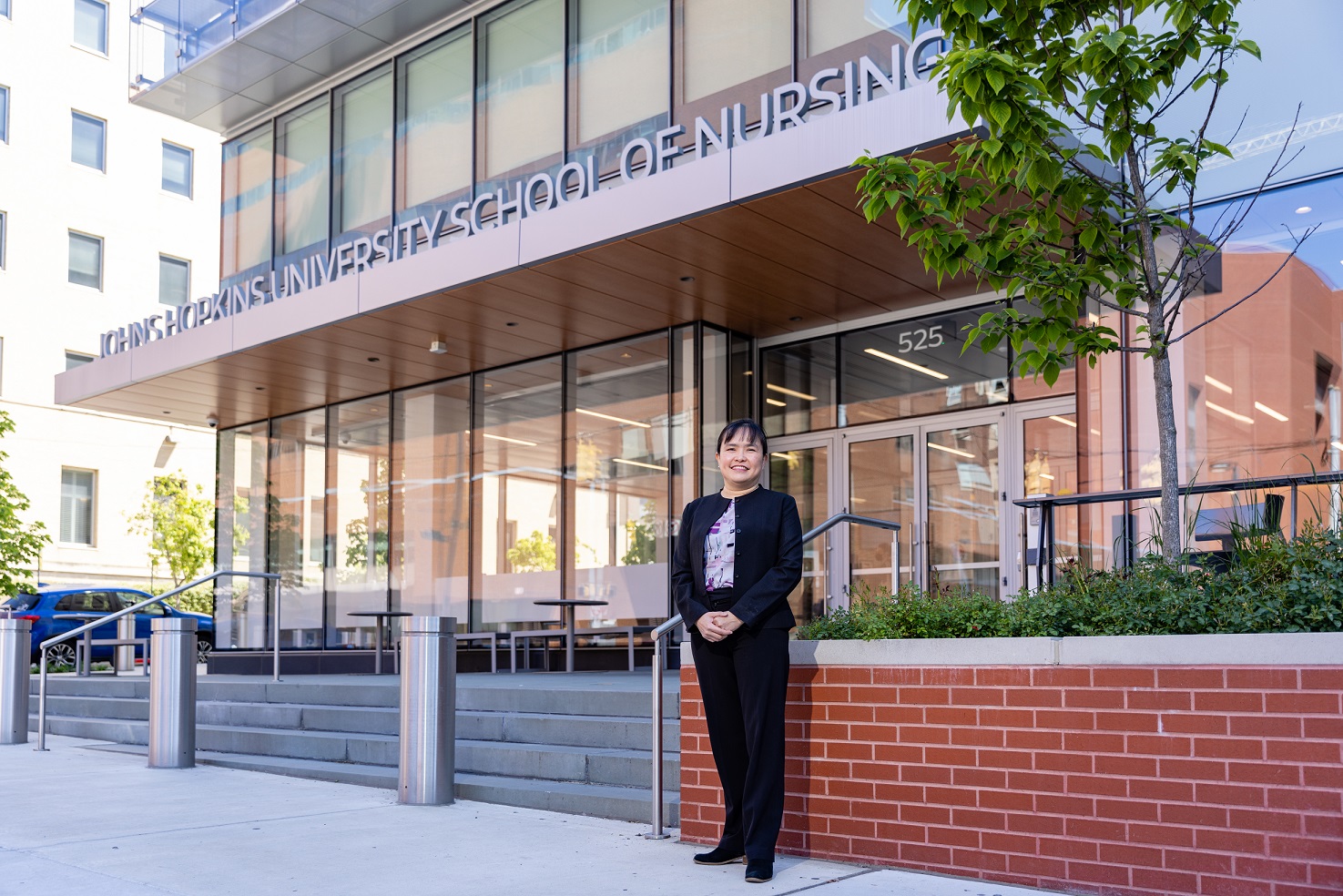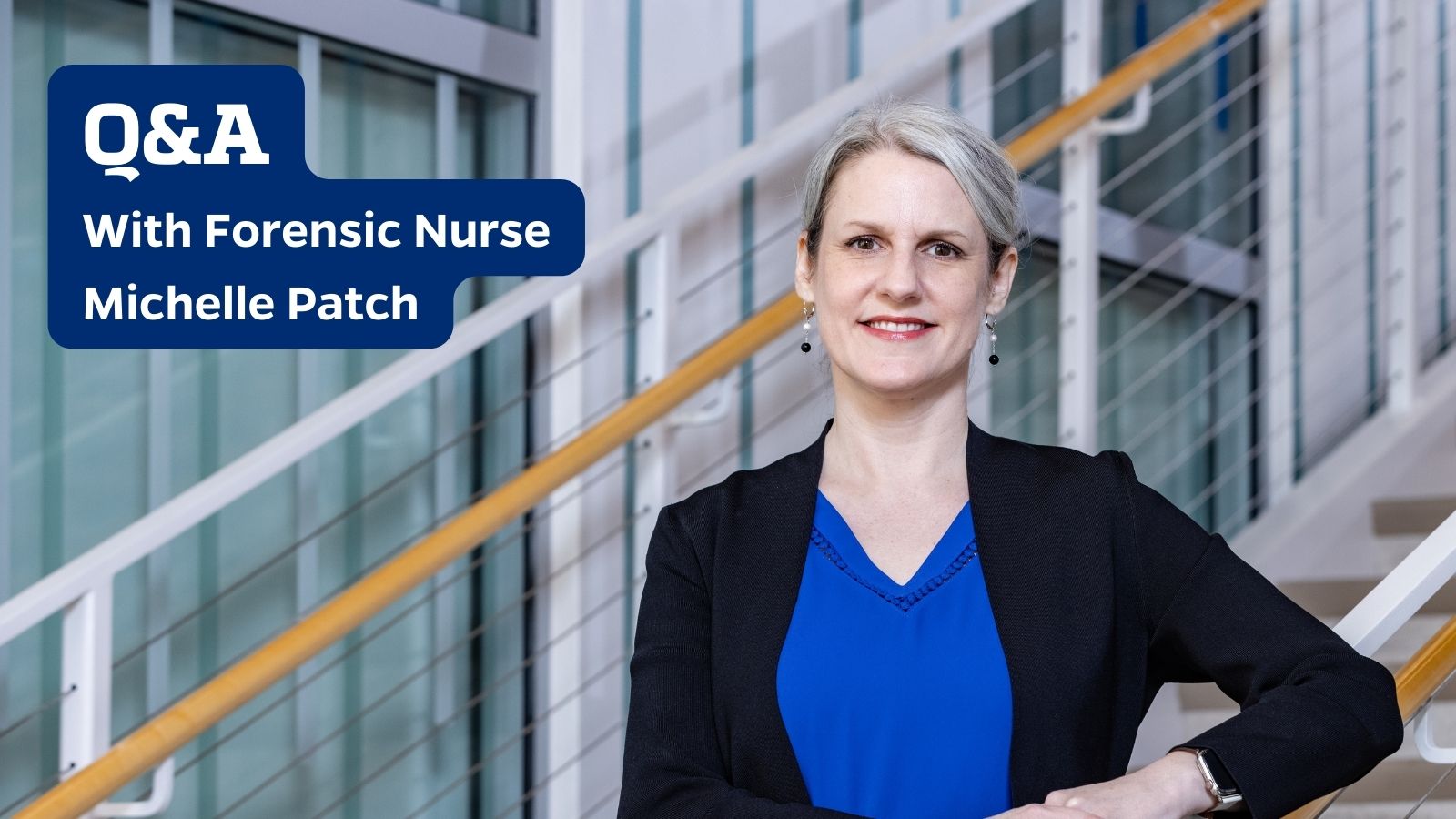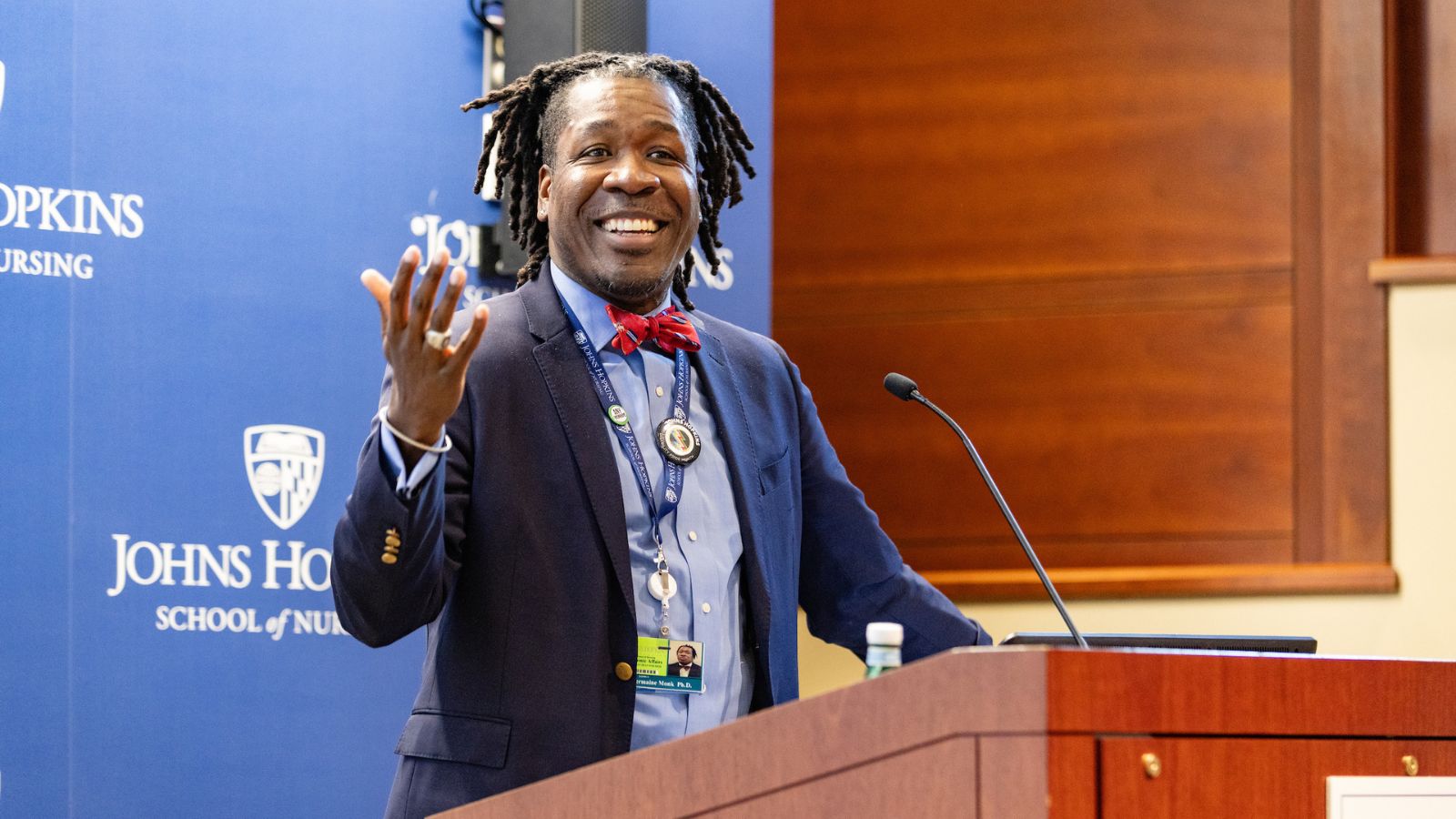“Symptom management is something nurses do every day, because we care for patients.”
Nada Lukkahatai, PhD, RN, FAAN, is an assistant professor and director of the MSN (Entry into Nursing) Research Honors Program at the Johns Hopkins School of Nursing. She earned her BSN and became a nurse in Thailand, but one day she cared for a person with terminal ovarian cancer who was in incredible pain and had maxed out her allotted pain medication. Then, the team found out that she had been self-medicating with non-prescribed medication that she hid under the bed.
“We had to take away her non-prescribed medications even though she was still suffering from severe pain and inadequate pain management. I thought, there has to be a better way,” says Dr. Lukkahatai. She decided to explore the question through nursing research, and a scholarship brought her to the U.S.
Can we identify the factors that make people experience pain differently, and use that information to manage pain better?
At first she approached the question through a psychosocial approach, and expected a person’s experience of pain to be impacted by their culture, religion, gender and other psychological factors. “Data in the U.S. reflected mostly Christian patients and in Thailand the majority were Buddhist; I expected Buddhism would play a big role in a person’s experience of pain and coping, but it didn’t,” says Dr. Lukkahatai.
From psychosocial influence to biomarkers
“When symptoms such as pain become intense, psychosocial factors don’t matter, but there may be biological factors we are missing,” says Dr. Lukkahatai. At the National Institutes of Health (NIH) she learned about biomarkers, biological molecules found in blood, other body fluids, or tissues that are measurable indicators of a state or condition. Now she is looking for a biomarker for symptoms including pain, fatigue and depression. “We hope one day to be able to tell people if you have this biomarker your pain, fatigue or depression will change this way during disease or treatment, and this non-pharmacological intervention will be more effective,” she says.
Personalized Symptoms Management Program for Cancer Survivors
Dr. Lukkahatai is now principal investigator for “The Effect of Tailored Non-Pharmacological Interventions Program on Symptoms Cancer Survivors,” a program that began in 2019. It is a 12 week, home based program using nonpharmacological approaches (exercise, mindfulness, and acupressure) personalized to the patients’ symptoms, physical function, and preference to help them manage their symptoms, and it works in addition to their medications. Patients are enjoying the program, thanks in large part to the personalized care and home visits (converted to Zoom calls and follow up during COVID), describing it as a “jumpstart on living healthy again.”
So why choose a nonpharmacological approach?
“Nonpharmacological approaches help with alleviating fatigue, better mood, improved pain, better sleep,” says Dr. Lukkahatai. “When the symptoms are well controlled, patients can tolerate the treatment better and have a better quality of life.” What’s more, nonpharmacological symptom management interventions are a perfect fit for nurses. “Symptom management is something nurses do every day, because we care for patients,” she continues. This includes things like positioning, compressions and icing an injury, breathing and relaxation techniques, massages, and exercise. Nurses offer these interventions for patients in hospitals and as part of patients’ education before they leave the hospital setting.
A biomarker for symptoms
Throughout the intervention, the program collects blood samples to identify biomarkers that can explain the change in symptoms and the effect of interventions on symptoms. The researchers have zeroed in on the regulation of a protein called “brain derived neurotrophic factor” as well as biological (epigenetic) age.
“At the early stage, symptoms and resilience tend to get worse if patients have low brain derived neurotrophic factor and their biological age is older than chronical age. We have to figure out why—and what can we do to reverse it,” says Dr. Lukkahatai.



 Forging Policy: How Can Doulas Improve Black Maternal Health?
Forging Policy: How Can Doulas Improve Black Maternal Health? Q & A With Forensic Nurse, Michelle Patch
Q & A With Forensic Nurse, Michelle Patch Dr. Robert Atkins, Anna D. Wolf Endowed Professor
Dr. Robert Atkins, Anna D. Wolf Endowed Professor Forging Policy: Associate Dean Jermaine Monk and Education After Affirmative Action
Forging Policy: Associate Dean Jermaine Monk and Education After Affirmative Action My First Teachers in Nursing School Weren’t Nurses
My First Teachers in Nursing School Weren’t Nurses






